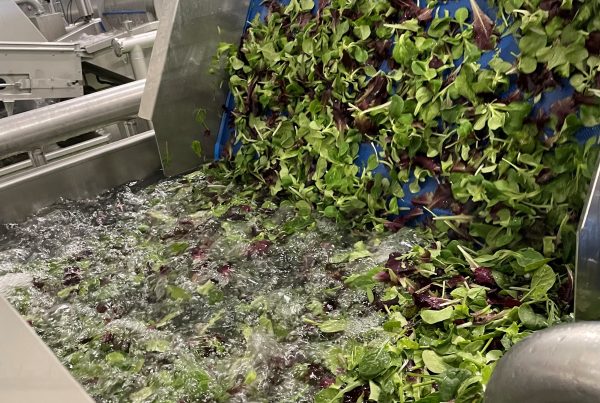Meeting increasing food demand requires the food and beverage industry to prioritize flexibility, productivity, and sustainability. Achieving these goals involves careful water resource management, decarbonization, and energy efficiency. Water plays a crucial role in all stages of food production, requiring effective treatment to ensure safety and compliance with food standards.
Food Processing: Efficiency, sustainability, and water quality management
The role of water in food processing
Water is essential in food production – as an ingredient, for sanitation, and in direct contact with produce. Proper treatment is critical to control physical, chemical, and biological risks, ensuring microbiological safety, minimizing contamination, and maintaining high product quality.

Why use ozone – the natural solution?
Ozone is a powerful, natural oxidizer that eliminates bacteria, viruses, and pathogens while leaving no harmful residues. Its benefits in food processing include:
FLO3W® as water quality management system within the food industry
The FLO3W® system ensures safe and efficient water quality management through ozone-based treatment. It adapts to varying process conditions and offers:
• Microbiological water quality control.
• Biofilm prevention, reducing contamination risks.
• Increased efficiency of heat exchangers and chillers.
• Reduced need for mechanical or chemical cleaning.
• Real-time monitoring and data analysis for quality assurance.
Applications of FLO3W®
FLO3W® integrates seamlessly into food processing systems, treating water used in washing, cooling, polishing, and sanitation processes. Its centralized or dedicated configurations allow customized solutions for bottleneck points or multiple steps in production.
Why Choose FLO3W®?
- Treats process water without harmful chemicals.
- Adapts dosages based on incoming water quality and raw materials.
- Monitors and stores water and product quality data.
- Reduces downtime and operational costs.
The FLO3W® system empowers food processors to maintain high water quality, ensure food safety, and promote sustainability – supporting efficient and environmentally responsible production.
